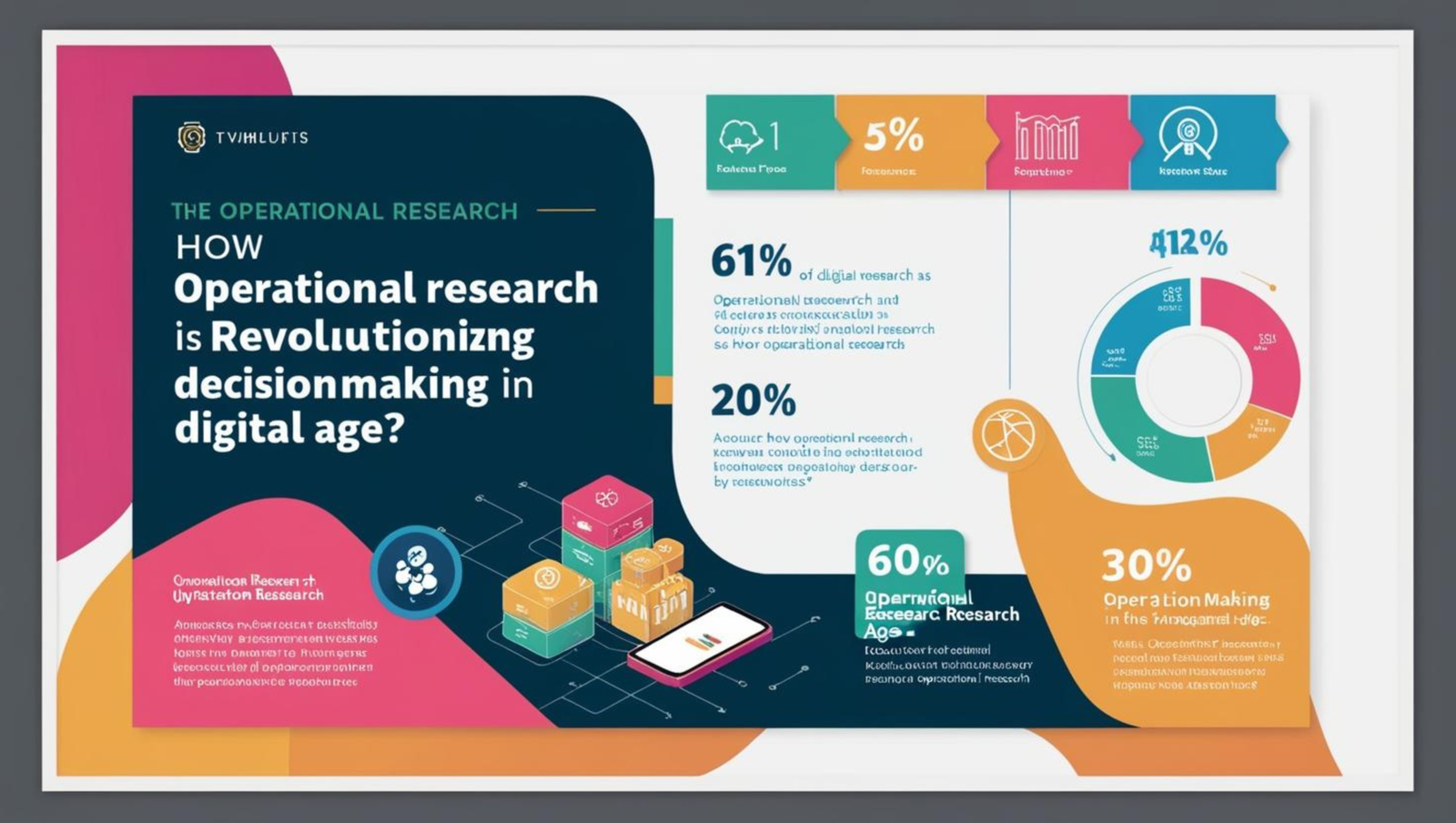
How Operational Research is Revolutionizing Decision-Making in the Digital Age
How Operational Research is Revolutionizing Decision-Making in the Digital Age
In an era where data is abundant and decisions must be made swiftly, Operational Research (OR) has emerged as a pivotal force in transforming how organizations navigate complexity. By integrating advanced analytical methods with cutting-edge technologies, OR is not just supporting decision-making—it’s revolutionizing it.
The Evolution of Operational Research
Operational Research originated during World War II, where it was utilized to improve military logistics and strategies. Post-war, its applications expanded into various industries, focusing on optimizing operations and resource allocation. Today, OR has evolved to incorporate sophisticated tools and methodologies, addressing complex problems in diverse sectors.
Core Applications in the Digital Age Supply Chain Optimization
Modern supply chains are intricate and global. OR techniques, such as linear programming and simulation models, enable companies to optimize inventory levels, reduce costs, and improve delivery times. For instance, companies like Shell and Walgreens have leveraged OR to enhance their supply chain efficiency, resulting in significant cost savings and improved service levels. Databricks
Healthcare Management
In healthcare, OR is instrumental in improving patient care and operational efficiency. Hospitals use OR models for scheduling surgeries, managing bed occupancy, and allocating staff, leading to better patient outcomes and resource utilization.
Financial Services
Financial institutions employ OR for risk assessment, portfolio optimization, and fraud detection. By analyzing vast datasets, OR helps in making informed investment decisions and enhancing regulatory compliance.
Transportation and Logistics
OR aids in route planning, fleet management, and traffic flow optimization. Ride-sharing companies, for example, use OR algorithms to match drivers with passengers efficiently, reducing wait times and improving user satisfaction.
Integration with Emerging Technologies Artificial Intelligence and Machine Learning
The synergy between OR and AI/ML has opened new frontiers in predictive analytics and decision-making. AI enhances OR models by providing real-time data analysis and learning capabilities, leading to more accurate forecasts and adaptive strategies.
Big Data Analytics
The advent of big data has amplified the capabilities of OR. By processing large volumes of structured and unstructured data, OR models can uncover hidden patterns and insights, facilitating proactive decision-making.
Digital Twins and Simulation
Digital twins—virtual replicas of physical systems—allow organizations to simulate scenarios and test outcomes without real-world risks. OR leverages these simulations to optimize processes and anticipate potential issues.
Real-World Case Studies E-commerce Platforms
Companies like Amazon utilize OR for demand forecasting and delivery optimization. By analyzing customer behavior and logistics data, they ensure timely deliveries and efficient inventory management.
Urban Planning
Cities employ OR for traffic management and infrastructure development. By modeling traffic patterns and population growth, urban planners can design efficient transportation systems and public services.
Benefits of Operational Research in Decision-Making
-
Enhanced Efficiency: Streamlining operations and reducing costs through optimized resource allocation.
-
Improved Accuracy: Data-driven decisions minimize errors and enhance reliability.
-
Strategic Planning: Long-term forecasting and scenario analysis support better planning.
-
Risk Mitigation: Identifying potential issues before they arise, allowing for proactive solutions.
Challenges and Considerations
-
Data Quality and Availability: Effective OR models require accurate and comprehensive data.
-
Complexity of Models: Developing and interpreting OR models necessitates specialized knowledge.
-
Integration with Existing Systems: Incorporating OR into current organizational processes can be challenging.
The Future of Operational Research
As technology continues to advance, OR is poised to become even more integral to decision-making processes. The integration of AI, IoT, and other emerging technologies will further enhance OR capabilities, enabling more dynamic and responsive strategies. Investing in OR education and skill development will be crucial for organizations aiming to stay competitive in the digital age.
Conclusion
Operational Research is at the forefront of transforming decision-making in the digital era. By harnessing data and advanced analytics, organizations can navigate complexity with greater confidence and agility. Embracing OR not only enhances efficiency and accuracy but also empowers strategic foresight, positioning businesses for sustained success in an ever-evolving landscape.










